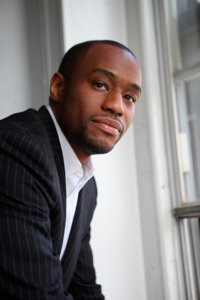Speakers
April 25, 2024
Antiracism and Liberation in the Arts
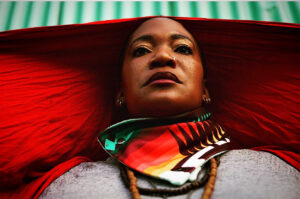 Nina Elizabeth “Lyrispect” Ball is a Baltimore-born, Philly-bred poet, cultural curator, educator, writer, producer and award-winning Creative with a degree in Film and Africology from Temple University. Prior to her role as Director of Programming at the African American Museum in Philadelphia, she spent a decade as an entrepreneur while holding a sustained leadership role with the Brooklyn-based organization “BLACK GIRLS ROCK!” Nina served in a national role with the Los Angeles-based company “ARRAY”, founded by filmmaker Ava DuVernay. In her 24- year career, Nina has worked around the world, from India to St. Thomas, and with almost every major cultural institution in Philadelphia. She has been a returning guest curator for the Philadelphia Museum of Art and The Barnes Foundation. She co-produced, “The Harvest,” one of the largest and longest running open mic and showcase events on the East Coast. She has also been a featured speaker and commissioned poet from Spelman Museum & College in Atlanta, GA to the Isabella Stewart Gardner Museum in Boston, MA. She is the 2021 recipient of the Gold “Telly” Award for Voiceover Craft and the “Emerging Visionary” award through “Shea Moisture” and “Good Mirrors Aren’t Cheap.”
Nina Elizabeth “Lyrispect” Ball is a Baltimore-born, Philly-bred poet, cultural curator, educator, writer, producer and award-winning Creative with a degree in Film and Africology from Temple University. Prior to her role as Director of Programming at the African American Museum in Philadelphia, she spent a decade as an entrepreneur while holding a sustained leadership role with the Brooklyn-based organization “BLACK GIRLS ROCK!” Nina served in a national role with the Los Angeles-based company “ARRAY”, founded by filmmaker Ava DuVernay. In her 24- year career, Nina has worked around the world, from India to St. Thomas, and with almost every major cultural institution in Philadelphia. She has been a returning guest curator for the Philadelphia Museum of Art and The Barnes Foundation. She co-produced, “The Harvest,” one of the largest and longest running open mic and showcase events on the East Coast. She has also been a featured speaker and commissioned poet from Spelman Museum & College in Atlanta, GA to the Isabella Stewart Gardner Museum in Boston, MA. She is the 2021 recipient of the Gold “Telly” Award for Voiceover Craft and the “Emerging Visionary” award through “Shea Moisture” and “Good Mirrors Aren’t Cheap.”
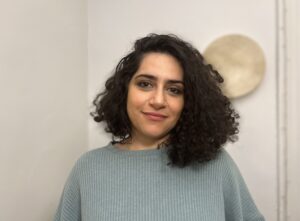 Farah Barqawi is a Palestinian author, educator, performer, podcaster, and a feminist organizer. Her poetry and prose works have appeared in multiple languages on online platforms and in multiple anthologies. In 2019, Barqawi produced and hosted a season of the prominent Arabic podcast “Eib” (Taboo) in cooperation with SOWT Jordan. In 2018–2019, She wrote and performed her first solo piece, “Baba, Come to Me.” She is the co-founder of two feminist projects: “Wiki Gender” and “The Uprising of Women in the Arab World.” Barqawi holds an MA in public policy from the University of Chicago (2011). This spring (2024) she is finalizing her MFA in Nonfiction Creative Writing at New York University, where she also teaches Intro to Creative Writing to undergraduates.
Farah Barqawi is a Palestinian author, educator, performer, podcaster, and a feminist organizer. Her poetry and prose works have appeared in multiple languages on online platforms and in multiple anthologies. In 2019, Barqawi produced and hosted a season of the prominent Arabic podcast “Eib” (Taboo) in cooperation with SOWT Jordan. In 2018–2019, She wrote and performed her first solo piece, “Baba, Come to Me.” She is the co-founder of two feminist projects: “Wiki Gender” and “The Uprising of Women in the Arab World.” Barqawi holds an MA in public policy from the University of Chicago (2011). This spring (2024) she is finalizing her MFA in Nonfiction Creative Writing at New York University, where she also teaches Intro to Creative Writing to undergraduates.
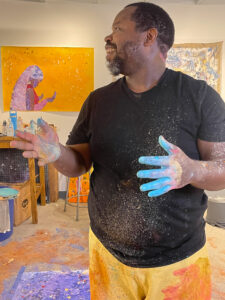 Ashon Crawley is Professor of Religious Studies and African-American and African Studies at the University of Virginia. He is the author of Blackpentecostal Breath: The Aesthetics of Possibility (2016) and The Lonely Letters (2020). An artist, his audiovisual art has been featured at Second Street Gallery, Bridge Projects, the California African American Museum and the National Mall in Washington DC. All his work is about otherwise possibility.
Ashon Crawley is Professor of Religious Studies and African-American and African Studies at the University of Virginia. He is the author of Blackpentecostal Breath: The Aesthetics of Possibility (2016) and The Lonely Letters (2020). An artist, his audiovisual art has been featured at Second Street Gallery, Bridge Projects, the California African American Museum and the National Mall in Washington DC. All his work is about otherwise possibility. Described by The New York Times as a “social conscience, multimedia collaborator, system builder, rhapsodist, historical thinker and multicultural gateway,” composer-pianist Vijay Iyer has earned a place as one of the leading music-makers of his generation. His honors include a MacArthur Fellowship, a Doris Duke Performing Artist Award, a United States Artist Fellowship, and the Alpert Award in the Arts. His newest album features his acclaimed trio with drummer Tyshawn Sorey and bassist Linda May Han Oh titled Compassion (ECM, 2024). His lush, expansive collaboration with Arooj Aftab and Shahzad Ismaily, Love in Exile (Verve, 2023), received two Grammy nominations and was named among the best albums of the year in Pitchfork and The New York Times.
Described by The New York Times as a “social conscience, multimedia collaborator, system builder, rhapsodist, historical thinker and multicultural gateway,” composer-pianist Vijay Iyer has earned a place as one of the leading music-makers of his generation. His honors include a MacArthur Fellowship, a Doris Duke Performing Artist Award, a United States Artist Fellowship, and the Alpert Award in the Arts. His newest album features his acclaimed trio with drummer Tyshawn Sorey and bassist Linda May Han Oh titled Compassion (ECM, 2024). His lush, expansive collaboration with Arooj Aftab and Shahzad Ismaily, Love in Exile (Verve, 2023), received two Grammy nominations and was named among the best albums of the year in Pitchfork and The New York Times.
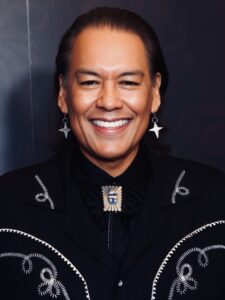 Bird Runningwater (Cheyenne/Mescalero Apache) was born and raised on the Mescalero Apache Reservation in New Mexico. He has dedicated his 28 year career to creating Native American and Indigenous stories in film and television. He is an Executive Producer on Erica Tremblay’s Fancy Dance starring Lily Gladstone and recently acquired for distribution by Apple TV+; And, he is Executive Producing the “Free Leonard Peltier ” Documentary currently in production. Runningwater headed the Sundance Institute’s Indigenous Filmmakers Program for 20 years, where he also served as the head of the Institute’s Diversity, Equity and Inclusion work. A member of the Academy of Motion Pictures Arts and Sciences responsible for the Oscars, he began his career in media at the Ford Foundation in New York City. Runningwater is a graduate of the University of Oklahoma with degrees in Journalism and Native American Studies, and received his Master of Public Affairs degree from the University of Texas at Austin’s Lyndon B. Johnson School of Public Affairs.
Bird Runningwater (Cheyenne/Mescalero Apache) was born and raised on the Mescalero Apache Reservation in New Mexico. He has dedicated his 28 year career to creating Native American and Indigenous stories in film and television. He is an Executive Producer on Erica Tremblay’s Fancy Dance starring Lily Gladstone and recently acquired for distribution by Apple TV+; And, he is Executive Producing the “Free Leonard Peltier ” Documentary currently in production. Runningwater headed the Sundance Institute’s Indigenous Filmmakers Program for 20 years, where he also served as the head of the Institute’s Diversity, Equity and Inclusion work. A member of the Academy of Motion Pictures Arts and Sciences responsible for the Oscars, he began his career in media at the Ford Foundation in New York City. Runningwater is a graduate of the University of Oklahoma with degrees in Journalism and Native American Studies, and received his Master of Public Affairs degree from the University of Texas at Austin’s Lyndon B. Johnson School of Public Affairs.
February 1, 2024
Antiracism and Liberation in Contemporary Activism
Panel One: Antiracism & Liberation in Contemporary Activism
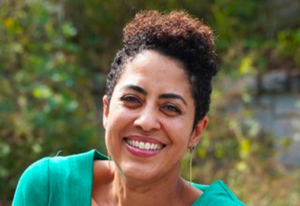
Ejim Dike is a senior fellow at the Western States Center and the former executive director of the U.S. Human Rights Network. She has worked as a human rights advocate and strategist for over 20 years. Her human rights work focuses on addressing poverty and discrimination using a human rights framework. She has extensive experience building literacy in using human rights laws and mechanisms for groups in the United States and globally. She has led some of the largest civil society delegations and participation in international human rights reviews of the United States. Ms. Dike consults with organizations to advance human rights focused on racial and gender justice. Some of her clients have included the Carter Center, Ford Foundation, Atlantic Fellows for Racial Equity, and the Narrative Initiative. Previously, she was Director of the Human Rights Project at the Urban Justice Center where she launched an annual report card on the human rights record of New York City Council members. She has been cited in articles appearing in Harper’s Magazine, MSNBC, The Daily News, Gotham Gazette, and City Limits. She has taught at Hunter College, Sarah Lawrence College, and John Jay College. She is a doctoral candidate at Clark Atlanta University.
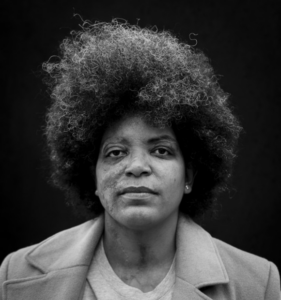 Ash-Lee Woodard Henderson is an Affrilachian (Black Appalachian) woman from the working class, born and raised in Southeast Tennessee. She is the first Black woman to serve as Co-Executive Director of the Highlander Research & Education Center in New Market, TN. As a member of multiple leadership teams in the Movement for Black Lives (M4BL), Ash-Lee has thrown down on the Vision for Black Lives and the BREATHE Act. Ash-Lee has served on the governance council of the Southern Movement Assembly, the advisory committee of the National Bailout Collective, and is an active leader of The Frontline. She is a long-time activist who has done work in movements fighting for workers, for reproductive justice, for LGBTQUIA+ folks, for environmental justice, and more.
Ash-Lee Woodard Henderson is an Affrilachian (Black Appalachian) woman from the working class, born and raised in Southeast Tennessee. She is the first Black woman to serve as Co-Executive Director of the Highlander Research & Education Center in New Market, TN. As a member of multiple leadership teams in the Movement for Black Lives (M4BL), Ash-Lee has thrown down on the Vision for Black Lives and the BREATHE Act. Ash-Lee has served on the governance council of the Southern Movement Assembly, the advisory committee of the National Bailout Collective, and is an active leader of The Frontline. She is a long-time activist who has done work in movements fighting for workers, for reproductive justice, for LGBTQUIA+ folks, for environmental justice, and more.
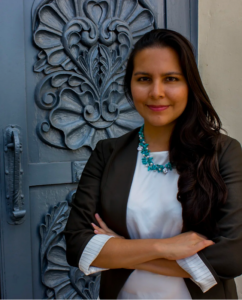 Natali Segovia (Quechua) is an international human rights attorney who currently serves as Executive Director of the Water Protector Legal Collective, an Indigenous-led legal organization that grew out of the #NoDAPL resistance at Standing Rock and today, continues to provide legal support and advocacy for Indigenous Peoples, the Earth, and climate justice movements in defense of Water Protectors and human rights defenders facing repression for their resistance and activism. As a litigator and advocate, Natali’s work focuses on the protection of the Earth and the rights of Indigenous Peoples affected by forced displacement, desecration of sacred lands, and human rights violations as a result of extractive industry and mass development projects. Over the past 15 years, her international work has focused on addressing human rights violations as a result of extractive industry and mass development projects in rural, “unseen” areas in countries including Colombia, Peru, Bolivia, and Brazil. Natali also frequently lectures and teaches at law schools across the United States. In 2022, Natali was the Fall Givelber Distinguished Public Interest Lecturer at Northeastern University School of Law, where she taught “In Defense of the Sacred: Human Rights, Earth Justice, and the Law.” Natali holds a law degree from Arizona State University and dual degrees in Political Science and Latin American Studies from Columbia University.
Natali Segovia (Quechua) is an international human rights attorney who currently serves as Executive Director of the Water Protector Legal Collective, an Indigenous-led legal organization that grew out of the #NoDAPL resistance at Standing Rock and today, continues to provide legal support and advocacy for Indigenous Peoples, the Earth, and climate justice movements in defense of Water Protectors and human rights defenders facing repression for their resistance and activism. As a litigator and advocate, Natali’s work focuses on the protection of the Earth and the rights of Indigenous Peoples affected by forced displacement, desecration of sacred lands, and human rights violations as a result of extractive industry and mass development projects. Over the past 15 years, her international work has focused on addressing human rights violations as a result of extractive industry and mass development projects in rural, “unseen” areas in countries including Colombia, Peru, Bolivia, and Brazil. Natali also frequently lectures and teaches at law schools across the United States. In 2022, Natali was the Fall Givelber Distinguished Public Interest Lecturer at Northeastern University School of Law, where she taught “In Defense of the Sacred: Human Rights, Earth Justice, and the Law.” Natali holds a law degree from Arizona State University and dual degrees in Political Science and Latin American Studies from Columbia University.
 Nadya Tannous is the Deputy Director of Honor the Earth, an Indigenous-led organization dedicated to addressing the climate crisis at its root causes of settler-colonialism, racial capitalism, imperialism and white supremacy. She is a passionate community organizer, writer and researcher, born and raised in the Bay Area (Unceded Ohlone Territory), with a focus on refugee rights, inter-community empowerment, and returning land to the people and people returning to the land. Nadya is a member of the Arab.Amplify Team through Temescal Arts Center, entering their third season of Arab.Amp Folktales. She is also a founding member of the Ghassan Kanafani Resistance Arts Scholarship, a project of the Palestinian Youth Movement. She is currently co-incubating a new project through We Rise called “Rising for Our Motherlands.” Nadya holds an MSc in Refugee and Forced Migration Studies from the University of Oxford.
Nadya Tannous is the Deputy Director of Honor the Earth, an Indigenous-led organization dedicated to addressing the climate crisis at its root causes of settler-colonialism, racial capitalism, imperialism and white supremacy. She is a passionate community organizer, writer and researcher, born and raised in the Bay Area (Unceded Ohlone Territory), with a focus on refugee rights, inter-community empowerment, and returning land to the people and people returning to the land. Nadya is a member of the Arab.Amplify Team through Temescal Arts Center, entering their third season of Arab.Amp Folktales. She is also a founding member of the Ghassan Kanafani Resistance Arts Scholarship, a project of the Palestinian Youth Movement. She is currently co-incubating a new project through We Rise called “Rising for Our Motherlands.” Nadya holds an MSc in Refugee and Forced Migration Studies from the University of Oxford.
Panel Two: Reflections on the Strike
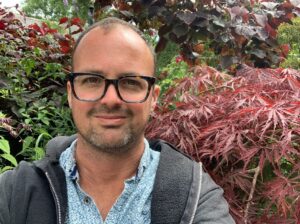
Prof. Andy Urban is an Associate Professor of American Studies and History at Rutgers University, New Brunswick, who focuses on labor, migration, and public history. His current book project explores histories and public memories of Seabrook Farms, a frozen foods agribusiness and company town in southern New Jersey that employed incarcerated Japanese Americans, guestworkers from the British West Indies, migrant farmworkers from the US South, European Displaced Persons, and stateless Japanese Peruvians during the 1940s and 1950s. Andy serves on the Immigration and Ethnic History Society’s Executive Board and is VP of the New Brunswick chapter of the Rutgers AAUP-AFT union.
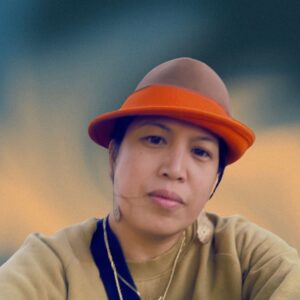
Johanna (J. Faith/Kapwa) Almiron, Ph.D., is a longtime educator, organizer, and scholar based in Nyack, New York. From 2019 to 2023, she taught cultural studies courses in the American Studies department at Rutgers, New Brunswick, as a part-time lecturer and then a non-tenure track adjunct professor. During the Strike-Spring of 2023, she penned the essay “A Faculty Union Can Fight for More Than Money,” published in a Public Seminar (The New School) at the end of March. Within two weeks of the publication and visible participation in the strike, the university did not offer another year as a non-tenure track but a return to the part-time lecturer position, citing budgetary constraints and enrollment. Almiron rejected the appointment as a final lesson for her Rutgers students that even after fighting for a better tomorrow, the powers that be will still demand consent to your own exploitation. And the only liberatory response must be–no!
Her groundbreaking scholarship on the artists Jean-Michel Basquiat and cultural criticism have been featured in LitHub, ArtNews, Public Seminar, LA Review of Books, Hyperallergic, Rizzoli Press, New York Times’ Shortlist and Vanity Fair, and galleries and museums, including the Guggenheim, Museum of Fine Arts Boston, Nahmad Gallery, and Queensland Gallery of Modern Art. Follow her work on the pen as machete @jfaithalmiron.
 Soili Smith is a writer and PhD candidate in American Studies at Rutgers University-Newark. Her dissertation interrogates aesthetics of refuge in the Canadian national imaginary. She is from the territory of the Lheidli T’enneh First Nation, and currently resides in Montreal.
Soili Smith is a writer and PhD candidate in American Studies at Rutgers University-Newark. Her dissertation interrogates aesthetics of refuge in the Canadian national imaginary. She is from the territory of the Lheidli T’enneh First Nation, and currently resides in Montreal.
December 7, 2023
Race, Liberation, and Palestine: A Conversation with Noura Erakat, Nick Estes, and Marc Lamont Hill
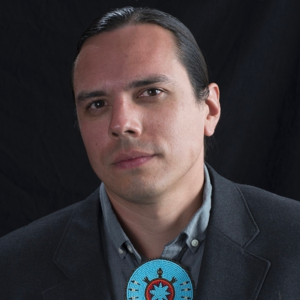
Prof. Nick Estes is an enrolled member of the Lower Brule Sioux Tribe and is an Assistant Professor in American Indian Studies at the University of Minnesota. He studies colonialism and global Indigenous histories, focusing on decolonization, oral history, U.S. imperialism, environmental justice, anti-capitalism, and the Oceti Sakowin.
Estes is the author of the award-winning book Our History Is the Future: Standing Rock Versus the Dakota Access Pipeline, and the Long Tradition of Indigenous Resistance (2019), which places the Indigenous-led movement to stop the Dakota Access Pipeline into historical context. He co-edited with Jaskiran Dhillon Standing with Standing Rock: Voices from the #NoDAPL Movement (2019), which draws together more than thirty contributors, including leaders, scholars, and activists of the Standing Rock movement, for a reflection of Indigenous history and politics and on the movement’s significance.
Estes was the American Democracy Fellow at the Charles Warren Center for Studies in History at Harvard University (2017-2018), the Lannan Literary Fellow for non-fiction (2019), and a Marguerite Casey Foundation Freedom Fellow (2020-2021). He is a National Archives Distinguished Scholar at Boston University (2022-2023).
Estes co-hosts the Red Nation podcast and is the lead editor of Red Media, an Indigenous-run non-profit media organization that publishes books, videos, and podcasts. Estes is also a member of the Oceti Sakowin Writers Society (formerly Oak Lake Writers Society), a network of Dakota, Nakota, and Lakota writers committed to defend and advance Oceti Sakowin sovereignty, cultures, and histories. He is also an award-winning journalist whose writing has been featured in the Guardian, The Intercept, Jacobin, Indian Country Today, The Nation, NBC News, The Funambulist Magazine, High Country News, and the New Yorker.
Dr. Marc Lamont Hill is one of the leading intellectual voices in the country.
He is currently the host of BET News, The Grio, Al Jazeera UpFront, and the Coffee & Books podcast. An award-winning journalist, Dr. Hill has received numerous prestigious awards from the National Association of Black Journalists, GLAAD, and the International Academy of Digital Arts and Sciences.
Dr. Hill is a Presidential Professor at the City University of New York Graduate Center, where he teaches courses in Anthropology, Urban Education, and Middle Eastern Studies. Prior to that, he held positions at Morehouse College, Temple University, and Columbia University.
Since his days as a youth in Philadelphia, Dr. Hill has been a social justice activist and organizer. He has worked on campaigns to end the death penalty, abolish prisons, and release numerous political prisoners. Dr. Hill has also worked in solidarity with human rights movements around the world. He is the founder and director of The People’s Education Center in Philadelphia, as well as the owner of Uncle Bobbie’s Coffee & Books.
Ebony Magazine has named him one of America’s 100 most influential Black leaders.
Dr. Hill is the author or co-author of eight books, including the award-winning Beats, Rhymes, and Classroom Life; Nobody: Casualties of America’s War on The Vulnerable from Ferguson to Flint and Beyond; We Still Here: Pandemic, Policing, Protest, and Possibility; Except For Palestine: The Limits of Progressive Politics; and Schooling Against The Prison.
Dr. Hill holds a Ph.D. (with distinction) from the University of Pennsylvania. His current research and writing explore the relationships between race, culture, politics, and education in the United States and the Middle East.
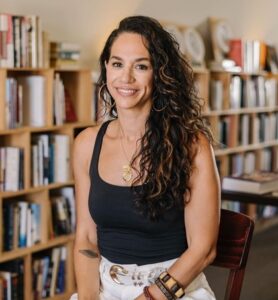 Prof. Noura Erakat is a human rights attorney and an Associate Professor at Rutgers University, New Brunswick in the Department of Africana Studies and the Program in Criminal Justice. Her research interests include human rights law, humanitarian law, national security law, refugee law, social justice, and critical race theory. Noura is an editorial committee member of the Journal for Palestine Studies and a co-Founding Editor of Jadaliyya, an electronic magazine on the Middle East that combines scholarly expertise and local knowledge. She is the author of Justice for Some: Law and in the Question of Palestine (Stanford University Press, 2019).
Prof. Noura Erakat is a human rights attorney and an Associate Professor at Rutgers University, New Brunswick in the Department of Africana Studies and the Program in Criminal Justice. Her research interests include human rights law, humanitarian law, national security law, refugee law, social justice, and critical race theory. Noura is an editorial committee member of the Journal for Palestine Studies and a co-Founding Editor of Jadaliyya, an electronic magazine on the Middle East that combines scholarly expertise and local knowledge. She is the author of Justice for Some: Law and in the Question of Palestine (Stanford University Press, 2019).
Noura’s scholarly publications include: “Racism, whiteness, and burnout in antiracism movements: How white racial justice activists elevate burnout in racial justice activists of color in the United States” in Ethnicities; “New Imminence in the Time of Obama: The Impact of Targeted Killings on the Law of Self-Defense” in the Arizona Law Review; and “Overlapping Refugee Legal Regimes: Closing the Protection Gap During Secondary Forced Displacement,” in the Oxford Journal of International Refugee Law. Her multimedia productions include the Black Palestinian Solidarity video and website as well as the Gaza In Context Pedagogical Project, featuring a short documentary. A full list of her scholarly publications can be found here. Her current research seeks to examine the activist praxes in contemporary renewals of Black-Palestinian solidarity as well as technologies of surveillance and counter-surveillance in greater East Jerusalem.
Noura served as Legal Counsel for the Domestic Policy Subcommittee of the Oversight and Government Reform Committee in the House of Representatives from 2007-2009. Prior to her time on Capitol Hill, Noura received a New Voices Fellowship to work as the national grassroots organizer and legal advocate at the US Campaign to End the Israeli Occupation. Noura worked as the Legal Advocacy Coordinator for the Badil Center for Refugee and Residency Rights from 2010-2013. In that capacity, she drafted their submissions to the human rights treaty bodies and lobbied the US Congress as well as diplomatic missions at the United Nations on their behalf.
Noura has appeared on CBS News, CNN International with Becky Anderson, CNN with Don Lemon, MSNBC’s “Up With Chris Hayes,” “All In With Chris Hayes,” “Ronan Farrow Daily,” Fox’s “The O’ Reilly Factor,” NBC’s “Politically Incorrect,” PBS News Hour, NPR, BBC World Service, Democracy Now, and Al-Jazeera America, Arabic, and English. Her publications have appeared in The New York Times, The Washington Post, The LA Review of Books, The LA Times, The Nation, USA Today, The Hill, Foreign Policy, Jezebel, Al Ahram English, Al Shabaka, MERIP, Fair Observer, Middle East Eye, The Interdependent, IntLawGrrls, The Huffington Post, Al Jazeera, and Jadaliyya.
Noura earned her J.D. and undergraduate degrees from the University of California at Berkeley (Phi Beta Kappa) and a LLM in National Security from Georgetown University Law Center (Distinction & Dean’s List). She also earned a LLM in Legal Education by completing the Abraham L. Freedman Teaching Fellowship at Temple University, Beasley School of Law.
October 27, 2023
Antiracism and Liberation in the Academy
Panel One: Race and Liberation in the Academy
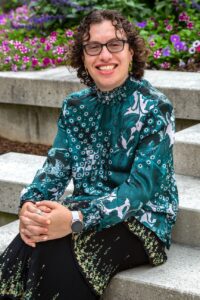 Dr. Carmen Alvaro Jarrín received their Ph.D. from Duke University and they are Associate Professor of Anthropology and Critical Race and Ethnic Studies at College of the Holy Cross. Their research explores the imbrication of medicine, the body and inequality in Brazil, with foci on plastic surgery, genomics and gender nonconforming activism. They are the author of The Biopolitics of Beauty: Cosmetic Citizenship and Affective Capital in Brazil (University of California Press), which explored the eugenic underpinnings of raciological thought among plastic surgeons, and the aesthetic hierarchies of beauty that reinforce racial inequality in Brazil. They are also co-editor of two collections of essays: Remaking the Human: Cosmetic Technologies of Body Repair, Reshaping and Replacement(Berghahn Books), and Precarious Democracy: Ethnographies of Hope, Despair and Resistance in Brazil (Rutgers University Press).
Dr. Carmen Alvaro Jarrín received their Ph.D. from Duke University and they are Associate Professor of Anthropology and Critical Race and Ethnic Studies at College of the Holy Cross. Their research explores the imbrication of medicine, the body and inequality in Brazil, with foci on plastic surgery, genomics and gender nonconforming activism. They are the author of The Biopolitics of Beauty: Cosmetic Citizenship and Affective Capital in Brazil (University of California Press), which explored the eugenic underpinnings of raciological thought among plastic surgeons, and the aesthetic hierarchies of beauty that reinforce racial inequality in Brazil. They are also co-editor of two collections of essays: Remaking the Human: Cosmetic Technologies of Body Repair, Reshaping and Replacement(Berghahn Books), and Precarious Democracy: Ethnographies of Hope, Despair and Resistance in Brazil (Rutgers University Press).
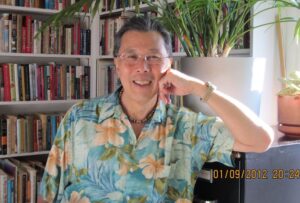 Gary Y. Okihiro is professor emeritus of international and public affairs at Columbia University, and a visiting professor of American studies and Ethnicity, Race & Migration at Yale University. He is author of twelve books, including Third World Studies: Theorizing Liberation (2016) and The Boundless Sea 沖廣: Self and History (2019). He received the Lifetime Achievement Award from the American Studies Association and the Association for Asian American Studies, and received an honorary doctorate from the University of the Ryūkyūs, Okinawa.
Gary Y. Okihiro is professor emeritus of international and public affairs at Columbia University, and a visiting professor of American studies and Ethnicity, Race & Migration at Yale University. He is author of twelve books, including Third World Studies: Theorizing Liberation (2016) and The Boundless Sea 沖廣: Self and History (2019). He received the Lifetime Achievement Award from the American Studies Association and the Association for Asian American Studies, and received an honorary doctorate from the University of the Ryūkyūs, Okinawa.
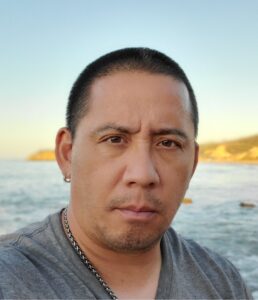 Dylan Rodríguez is a teacher, scholar, organizer and collaborator who has maintained a day job as a Professor at the University of California-Riverside since 2001. He is a faculty member in the recently created Department of Black Study as well as the Department of Media and Cultural Studies. Dylan served as Chair of the Department of Ethnic Studies from 2009-2016, Chair of the UCR Academic Senate from 2016-2020, and has worked as the Co-Director of the UCR Center for Ideas and Society since 2021. Dylan was elected President of the American Studies Association by his peers in 2020, the same year in which he was named to the inaugural class of Freedom Scholars.
Dylan Rodríguez is a teacher, scholar, organizer and collaborator who has maintained a day job as a Professor at the University of California-Riverside since 2001. He is a faculty member in the recently created Department of Black Study as well as the Department of Media and Cultural Studies. Dylan served as Chair of the Department of Ethnic Studies from 2009-2016, Chair of the UCR Academic Senate from 2016-2020, and has worked as the Co-Director of the UCR Center for Ideas and Society since 2021. Dylan was elected President of the American Studies Association by his peers in 2020, the same year in which he was named to the inaugural class of Freedom Scholars.
Dylan’s lifework focuses on liberationist, anticolonial, and abolitionist confrontations with the antiblack, colonial, and white supremacist violences that permeate the ongoing Civilization project. He is devoted to studying and teaching the historical, collective genius of rebellion, survival, and insurgent futurity that radically challenge dominant forms of authority, power, and institutionality.
Since the late-1990s, Dylan has participated as a founding member of organizations like Critical Resistance, Abolition Collective, Critical Ethnic Studies Association, Cops Off Campus, Scholars for Social Justice, and the UCR Department of Black Study, among others. He has worked closely with Southern California Library, Critical Resistance Abolitionist Educators, Strike MoMA, Underground Scholars Initiative, Dissenters, and numerous other organizations and collectives. He is the author of three books, Forced Passages: Imprisoned Radical Intellectuals and the U.S. Prison Regime (University of Minnesota Press, 2006), Suspended Apocalypse: White Supremacy, Genocide, and the Filipino Condition (University of Minnesota Press, 2009), and most recently White Reconstruction: Domestic Warfare and the Logic of Racial Genocide (Fordham University Press, 2021) which won the 2022 Frantz Fanon Book Award from the Caribbean Philosophical Association. He is a co-editor of the field shaping text Critical Ethnic Studies: A Reader (Duke University Press, 2016).
Dylan has written for a wide variety of scholarly and popular venues, including Truthout, Black Agenda Report, Harvard Law Review, American Quarterly, Social Text, and Radical History Review. He has appeared in dozens of podcasts, live interviews, experimental media projects, and livestreams including Huffington Post Live, The Real News, “Beyond Prisons,” “iMixWhatiLike,” “This Is Revolution,” “In the Black Podcast,” “Millennials Are Killing Capitalism,” and the International Festival of Arts and Ideas, among others.
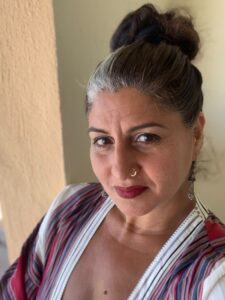 Nitasha Sharma is a professor of Black Studies and Asian American Studies at Northwestern University where she is the Director of the Asian American Studies Program and co-Director of the Council for Race and Ethnic Studies. She is the author of Hawai‘i is My Haven (Duke UP 2021) and Hip Hop Desis (Duke UP 2010) and is the associate editor of American Quarterly.
Nitasha Sharma is a professor of Black Studies and Asian American Studies at Northwestern University where she is the Director of the Asian American Studies Program and co-Director of the Council for Race and Ethnic Studies. She is the author of Hawai‘i is My Haven (Duke UP 2021) and Hip Hop Desis (Duke UP 2010) and is the associate editor of American Quarterly.
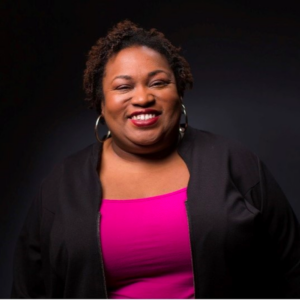 Brittney Cooper is Professor of Women’s, Gender, and Sexuality Studies and Africana Studies. Prof. Cooper is also the Principal Investigator and Founding Director of the Race and Gender Equity (RAGE) Lab at Rutgers. Her books include Beyond Respectability: The Intellectual Thought of Race Women, winner of the 2018 Merle Curti Prize for Best Book in U.S. Intellectual History from the Organization of American Historians; the New York Times bestseller Eloquent Rage: A Black Feminist Discovers Her Superpower; Feminist AF: A Guide to Crushing Girlhood (co-authored with Susana Morris and Chanel Craft Tanner) a Kirkus top Young Adult Book of 2021 and a nominee for the Garden State Teen Book Award from the New Jersey Library Association; Stand Up!: 10 Mighty Women Who Made a Change; and The Crunk Feminist Collection (co-edited with Susana Morris and Robin Boylorn). Cooper co-founded the Crunk Feminist Collective, a Hip Hop Generation Feminist Collective of Women of Color Activists and Scholars. They ran the highly successful Crunk Feminist Collective Blog which was named a top blog by New York Magazine in 2011. Today, they co-edit The Remix, a weekly substack newsletter.
Brittney Cooper is Professor of Women’s, Gender, and Sexuality Studies and Africana Studies. Prof. Cooper is also the Principal Investigator and Founding Director of the Race and Gender Equity (RAGE) Lab at Rutgers. Her books include Beyond Respectability: The Intellectual Thought of Race Women, winner of the 2018 Merle Curti Prize for Best Book in U.S. Intellectual History from the Organization of American Historians; the New York Times bestseller Eloquent Rage: A Black Feminist Discovers Her Superpower; Feminist AF: A Guide to Crushing Girlhood (co-authored with Susana Morris and Chanel Craft Tanner) a Kirkus top Young Adult Book of 2021 and a nominee for the Garden State Teen Book Award from the New Jersey Library Association; Stand Up!: 10 Mighty Women Who Made a Change; and The Crunk Feminist Collection (co-edited with Susana Morris and Robin Boylorn). Cooper co-founded the Crunk Feminist Collective, a Hip Hop Generation Feminist Collective of Women of Color Activists and Scholars. They ran the highly successful Crunk Feminist Collective Blog which was named a top blog by New York Magazine in 2011. Today, they co-edit The Remix, a weekly substack newsletter.
Dr. Cooper has also been awarded prizes or been a named finalist for several awards related to her digital commentary. She is currently a contributor at The Cut/New York Magazine and she is a former columnist at Salon.com, Cosmopolitan.com, and a former contributor at Time.com. Dr. Cooper frequently appears as a commentator on MSNBC and NPR, has appeared in several documentaries on Netflix and PBS, and her commentary has been published at the New York Times, the Washington Post, Ebony Magazine, Essence Magazine, Time Magazine, Marie Claire, PBS and many other outlets. In 2016, she gave a TED Talk for TED Women on “the Racial Politics of Time.” To date, her talk has been viewed over 1 million times. She has been named to The Root.com’s Root 100, an annual list of top Black influencers four times.
An award-winning teacher, Professor Cooper teaches courses on race, gender, and sexuality, Hip Hop, Black Intellectual History, and Black Feminist Thought. She was the 2016 recipient of the Masters Level Teaching Award from the Northeastern Association of Graduate Schools.
Panel Two: Race and Liberation at Rutgers
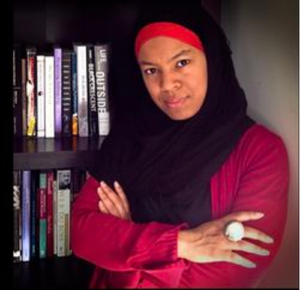 Dr. Donna Auston is an anthropologist, writer, and activist whose body of work focuses primarily on race, ethnicity, gender, religion, media representation, and Islam in America. Her dissertation research explores Black Muslim activism and spiritual protest in the post-Ferguson, Black Lives Matter era. Some of her other written work includes book chapters on the historical contributions of African American Muslims in the arts, culture, and social justice movements, and the connections between Islamophobia and Black Lives Matter. She currently teaches at Rutgers University, and is a member of the recently formed Black Muslim COVID Coalition. Dr. Auston has also published works on Black Islam and U.S. Politics, as well as a number of short essays on the lived experiences of Black Muslims with anti-Black racism, state surveillance, law enforcement profiling, and Islamophobia. Her work has been covered by national news outlets, including NBC News, and The Huffington Post, and was named one of the top 100 Muslim Social Justice leaders by MPower Change in 2016.
Dr. Donna Auston is an anthropologist, writer, and activist whose body of work focuses primarily on race, ethnicity, gender, religion, media representation, and Islam in America. Her dissertation research explores Black Muslim activism and spiritual protest in the post-Ferguson, Black Lives Matter era. Some of her other written work includes book chapters on the historical contributions of African American Muslims in the arts, culture, and social justice movements, and the connections between Islamophobia and Black Lives Matter. She currently teaches at Rutgers University, and is a member of the recently formed Black Muslim COVID Coalition. Dr. Auston has also published works on Black Islam and U.S. Politics, as well as a number of short essays on the lived experiences of Black Muslims with anti-Black racism, state surveillance, law enforcement profiling, and Islamophobia. Her work has been covered by national news outlets, including NBC News, and The Huffington Post, and was named one of the top 100 Muslim Social Justice leaders by MPower Change in 2016.
 Maya Mikdashi is an Associate Professor of Women’s, Gender, and Sexuality Studies and a Lecturer in the Program for Middle East Studies at Rutgers University, New Brunswick. She received her PhD in Anthropology from Columbia University, and also holds an MA from Georgetown University and a BA from the Lebanese American University in Beirut.
Maya Mikdashi is an Associate Professor of Women’s, Gender, and Sexuality Studies and a Lecturer in the Program for Middle East Studies at Rutgers University, New Brunswick. She received her PhD in Anthropology from Columbia University, and also holds an MA from Georgetown University and a BA from the Lebanese American University in Beirut.
Maya has been a Mellon Fellow, a Faculty Fellow at NYU, and has been granted research grants from the Social Science Research Council, the Wenner-Gren Foundation, the Middle East Research Commission, and Council/Ashkal Alwan. Maya is the author of Sextarianism: Sovereignty, Secularism and the State in Lebanon (Stanford University Press, 2022). Sextarianism is a theorization of the relationships between sexual and political difference. It suggests that producing, erupting, securitizing, and traversing the borders between the supposedly private and public spheres are key to understanding how secularism is operationalized, imagined, and desired in a world of nation states. While it emerges from archival and ethnographic research in Lebanon, Sextarianism offers transnational frameworks for understanding the relationships between sovereignty, secularism, violence, sexual difference, religious pluralism, law, and the state. For example, Sextarianism offers a language to think about bodily rights or trans rights in the United States, or the regulation of sexual difference more broadly, comparatively with the regulation of sexual difference in Egypt, Turkey, India, or France. It does so by focusing on technologies and ideologies of power that nation states share regardless of location: bureaucracy, law, and the structuring binaries of the public and private on the one hand, and the religious and the secular on the other.
Maya has been published in several peer reviewed journals, including the International Journal of Middle East Studies, Gay and Lesbian Quarterly, Transgender Studies Quarterly, Comparative Studies of South Asia, Africa and the Middle East, the Journal of Palestine Studies, and the American Indian Culture and Research Journal. She has also been published in edited academic volumes from Stanford University Press, UCLA Press and Oxford University Press, and in public facing venues. Maya’s scholarship has been translated into Arabic, Turkish, Farsi, Spanish, French and German.
Maya is a co-founding editor of Jadaliyya, an electronic outlet dedicated to public scholarship, and scholarly journalism on the contemporary, transnational Middle East. She shares editorial responsibility for content related to gender and sexuality, and to Lebanon, and is a frequent contributor to Jadaliyya.
She is a co-director of the feature-length documentary film About Baghdad (2003), Director of the documentary film Notes on the War (2006), and Assistant Director, Editor, and Cinematographer of the documentary series What is Said About Arabs and Terrorism (2007). In 2015 Maya collaborated with Carlos Motta on his film Deseos / رغبات, which she co-wrote and performed in. Before pursuing graduate school in the United States, Mikdashi worked in the television industry in Lebanon.
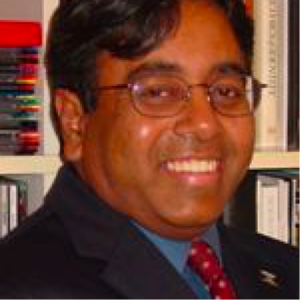 Edward Ramsamy, Ph.D. is Associate Professor of Africana Studies and member of the graduate faculty of Geography, and the graduate faculty of Urban Planning and Policy Development at the Bloustein School. He is the author of the book The World Bank and Urban Development: From Projects to Policy (Routledge, 2006). In addition to his research in international development planning and geographies of globalization, Dr. Ramsamy’s fields of study include the political economy of transition and nation-building in post-colonial/developing societies, as well as the comparative politics of identity and race relations in South Africa and the United States. He has edited Science, Culture and the Politics of Knowledge: Contexts and Conversations (forthcoming, Cambridge Scholars Press), and The Black Experience in America (with Gayle T. Tate, 2006, Kendall Hunt). He has published numerous articles on regional integration in southern Africa, as well as racial, ethnic, and national identity in post-apartheid South Africa. Dr. Ramsamy is Secretary and a Founding Trustee of the Global Literary Project, Inc. He is also the recipient of numerous honors and awards, including fellowships from the Social Science Research Council, the Center for the Critical Analysis of Contemporary Culture, and the Institute for Research on Women.
Edward Ramsamy, Ph.D. is Associate Professor of Africana Studies and member of the graduate faculty of Geography, and the graduate faculty of Urban Planning and Policy Development at the Bloustein School. He is the author of the book The World Bank and Urban Development: From Projects to Policy (Routledge, 2006). In addition to his research in international development planning and geographies of globalization, Dr. Ramsamy’s fields of study include the political economy of transition and nation-building in post-colonial/developing societies, as well as the comparative politics of identity and race relations in South Africa and the United States. He has edited Science, Culture and the Politics of Knowledge: Contexts and Conversations (forthcoming, Cambridge Scholars Press), and The Black Experience in America (with Gayle T. Tate, 2006, Kendall Hunt). He has published numerous articles on regional integration in southern Africa, as well as racial, ethnic, and national identity in post-apartheid South Africa. Dr. Ramsamy is Secretary and a Founding Trustee of the Global Literary Project, Inc. He is also the recipient of numerous honors and awards, including fellowships from the Social Science Research Council, the Center for the Critical Analysis of Contemporary Culture, and the Institute for Research on Women.
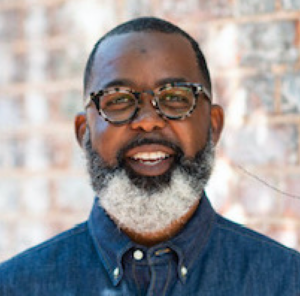 Maurice Wallace is associate professor of English at Rutgers. His fields of expertise include African American literature and cultural studies, nineteenth-century American literature, the history and representation of American slavery, and gender studies. He is the author of Constructing the Black Masculine: Identity and Ideality in African American Men’s Literature and Culture, 1775-1995, a book on the history of black manhood in African American letters and culture, and is co-editor with Shawn Michelle Smith of a volume of scholarly articles on early photography and African American identity entitled Pictures and Progress: Early Photography and the Making of African-American Identity. Professor Wallace has served on the editorial boards for American Literature and Yale Journal of Criticism and is a contributing editor to James Baldwin Review. His current research and writing agendas include a monograph on the religious life and leanings of Frederick Douglass, and a critical exploration into the sound of Martin Luther King Jr.’s voice. Professor Wallace also teaches in areas of visual culture and sound studies.
Maurice Wallace is associate professor of English at Rutgers. His fields of expertise include African American literature and cultural studies, nineteenth-century American literature, the history and representation of American slavery, and gender studies. He is the author of Constructing the Black Masculine: Identity and Ideality in African American Men’s Literature and Culture, 1775-1995, a book on the history of black manhood in African American letters and culture, and is co-editor with Shawn Michelle Smith of a volume of scholarly articles on early photography and African American identity entitled Pictures and Progress: Early Photography and the Making of African-American Identity. Professor Wallace has served on the editorial boards for American Literature and Yale Journal of Criticism and is a contributing editor to James Baldwin Review. His current research and writing agendas include a monograph on the religious life and leanings of Frederick Douglass, and a critical exploration into the sound of Martin Luther King Jr.’s voice. Professor Wallace also teaches in areas of visual culture and sound studies.
October 26, 2023
A Conversation with Dr. Lorgia García-Peña, Moderated by Dr. Evie Shockley & Dr. Sylvia Chan-Malik
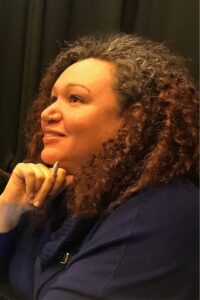 Dr. Lorgia García-Peña is a writer, activist and scholar who specializes in Latinx Studies with a focus on Black Latinidades. Her work is concerned with the ways in which antiblackness and xenophobia intersect the Global North producing categories of exclusion that lead to violence and erasure. Through her writing and teaching, Dr. García Peña insists on highlighting the knowledge, cultural, social and political contributions of people who have been silenced from traditional archives.
Dr. Lorgia García-Peña is a writer, activist and scholar who specializes in Latinx Studies with a focus on Black Latinidades. Her work is concerned with the ways in which antiblackness and xenophobia intersect the Global North producing categories of exclusion that lead to violence and erasure. Through her writing and teaching, Dr. García Peña insists on highlighting the knowledge, cultural, social and political contributions of people who have been silenced from traditional archives.
She is the author of three award winning books, The Borders of Dominicanidad: Race, Nations and Archives of Contradictions (Duke, 2016) which was translated and published in Spanish by Editorial Bonó in 2020; Translating Blackness: Latinx Colonialities in Global Perspective (Duke, 2022) and Community as Rebellion (Haymarket, 2022), translated as La comunidad como rebelión (Haymarket, 2023). Additionally, her work has been covered in several publications including the New York Times, the Washington Post, The New Yorker, The Boston Review and Harper’s Bazaar. She has appeared on CNN, BBC, MSNBC, Univision and Telemundo and is a regular contributor to NACLA and Asterix Journals.
An engaged scholar committed to liberating education and bridging the gaps that separate the communities she comes from (Black, immigrant, working) and the university, Dr. García Peña is also a co-founder of Freedom University Georgia, a school that provides college instruction to undocumented students and the co-director of Archives of Justice a transnational digital archive project that centers the life of people who identify as Black, queer and migrant. She has been widely recognized for her public facing work: in 2022 she received the Angela Davis Prize for Public Scholarship, in 2021 the Margaret Casey Foundation named her a Freedom Scholar, and in 2017 the Massachusetts Institute of Technology (MIT) presented her a Disobedience Award for the co-founding of Freedom University. Additionally, her scholarship has been supported by the Ford Foundation, The Johns Hopkins University African Diaspora Studies Postdoctoral Fellowship and the Future of Minority Studies Fellowship and the Mellon Foundation.
García-Peña received a PhD in American Culture from the University of Michigan, Ann Arbor in 2009 and an M.A. in Latin American and Latino Literatures from Rutgers University.
